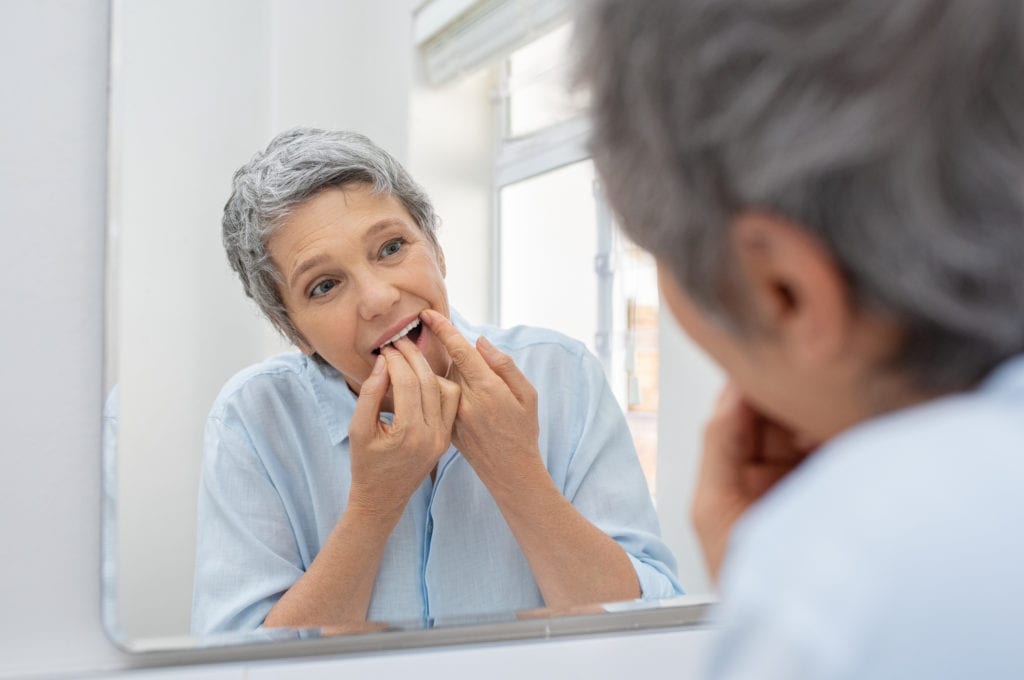Dr. Sumitra Yalamanchili and Dr. Shalini Sethi are dedicated to helping patients receive functional and balanced smiles. At Elevate Dental Implant Center in Hanover, Maryland, Dr. Yalamanchili and Dr. Sethi provide dental implant treatment for patients with one or more missing teeth.
You need to maintain dental implants properly to last a lifetime. Keep up your oral hygiene routine, avoid certain foods and substances, and be aware of possibly developing dental problems following dental implant treatment. Learn more about how to care for your new dental implants below.

Maintain Your Oral Health
You can brush and floss dental implants just like natural teeth. Remember to brush and floss twice a day. Avoid toothbrushes with hard bristles, as this can scratch and damage the surface of your implants. Look for nylon toothbrushes. The bristles are pliable and gentle so that they won’t scratch your implants. You can use a Proxabrush to get those hard-to-reach areas around the implants.
Don’t use any oral hygiene products that are made of metal to avoid damaging your implants. Using oral hygiene products that are for sensitive teeth is preferred. This includes toothpaste and mouthwash. Plaque and food particles can accumulate around your implants, so you must keep flossing between your implants to combat tooth decay and gum disease.
Now is a good time to start if you haven’t used mouthwash before. It’s a great addition to your oral healthcare routine. It helps take care of bad breath while also killing the bad bacteria that hang around after you eat. Use it twice a day after you’re brushing and flossing your teeth. Swish it around in your mouth for about 30 seconds, and then spit it out. Never ingest mouthwash!
A Waterpik is another good addition to your oral care routine. It uses a precise stream of water to remove debris and buildup around your teeth. It’s especially good for cleaning dental implants. The Waterpik can get into nooks and crannies that are hard to reach with normal floss.
Be Aware of Bruxism
You may have bruxism if you wake up with a headache or jaw and tooth pain. This condition occurs when you clench or grind your teeth. It is often caused by stress or a sudden accidental injury to the mouth. Bruxism can cause problems for your implants.
Your dental implant restoration may become loose if constant grinding weakens the bond between the jawbone and the implant. If you suffer from bruxism, we can provide nightguards that keep the teeth from grinding together and damaging your implants.
Avoid Certain Foods
Eating hard, chewy, or sticky foods can damage your dental implants. Avoid these types of foods after receiving your dental implants:
- Caramel
- Hard candies
- Dried fruit
- Potato chips
- Carrots
- Apples
- Steak
Refrain From Using Alcohol and Tobacco
Although it is always healthier to avoid alcohol consumption and tobacco products, it is important to refrain from these substances when you have dental implants, particularly during the first 72 hours after your implant surgery. During the first few days after dental implantation, your body rebuilds tissue and is vulnerable to dental problems.
Nicotine constricts blood vessels and reduces blood flow to the soft tissues, so smoking and using tobacco during your 6-month implant healing period slows down this process.
